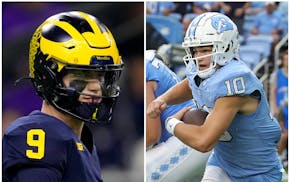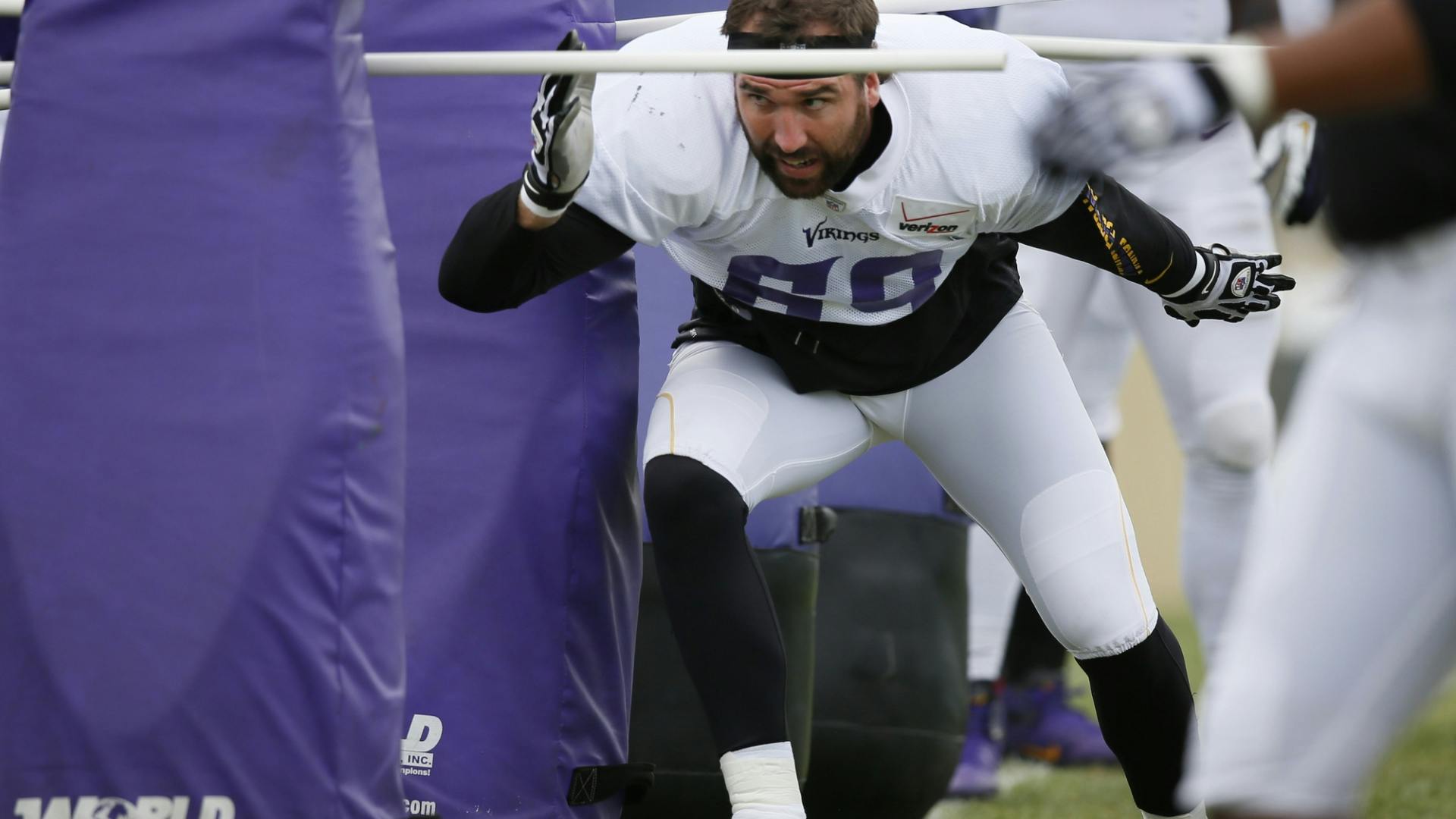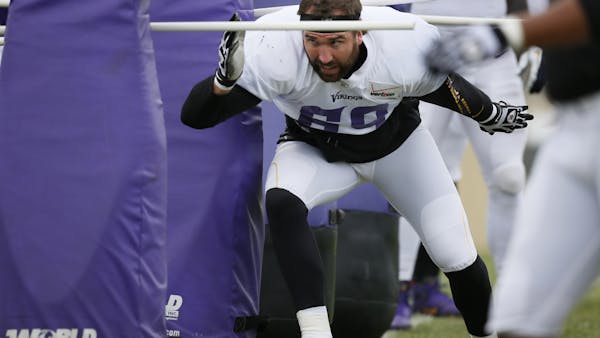Kevin Williams still considers himself an elite NFL defensive tackle.
His résumé provides a snapshot: Six Pro Bowl selections, five times named first-team All-Pro, a member of the 50 Greatest Vikings team. He's a player so respected inside his locker room that even veterans refer to him as "Ticket" – short for Big Ticket, a nickname Kevin Garnett made fashionable in a Timberwolves uniform.
"I've done it consistently for 10 years," he said. "You can tell that by my play."
But Williams' situation reminds once again that there are no victory laps in the NFL.
Williams has been a great player whose career deserves Hall of Fame consideration. Of the 33 modern era defensive linemen enshrined in the Hall of Fame, only nine have more first-team All-Pro selections than Williams. Whether he belongs is debatable, but he's done enough to warrant discussion.
The NFL shelf life reaches everyone, though, even great players, and that's a reality that Williams faces now. In his 11th season, he's the Vikings' most tenured player. He turns 33 in two weeks, which also makes him their oldest player. And he's coming off his worst statistical season as a pro.
Williams returned this season after agreeing to a restructured contract that cut his base salary by $2.5 million and eliminated the 2014 season from the deal. Williams is scheduled to make $4.9 million this season and then become a free agent.
The team also wants to limit Williams to 30-35 snaps per game, essentially a reduced role as a full-time mentor to rookie first-round pick Sharrif Floyd, his eventual replacement.
"It's funny, I'm in a situation that I've never been in," Williams said. "I don't have a team next season when the season is done. I'm looking at it as a challenge. I have to prove myself all over again."
Career twilight is a strange place for players who ranked among the best of the best in their prime and carry a deep emotional attachment with their team. They set a certain standard, command a certain salary and then poof, their play slips and their employer feels compelled to get younger and cheaper at that position. Every player understands the NFL is a cutthroat business, but it strikes a different chord when it involves stars.
"I'm asked to take a pay cut out of a lot of guys on the team," Williams said. "Hard work doesn't always pay off and doing the right things doesn't always pay off. That's what it felt like to me. But that's water under the bridge. That's over with. I'm laying it on the line and hopefully continue my career here."
To suggest Williams is motivated now implies that he wasn't motivated before, which is patently false. He has been feared and revered as an athletic defensive tackle, but intense pride has always fueled his inner drive.
During a visit to his Arkansas home a few years ago, I casually mentioned some promising young defensive tackles around the league. Williams gave a crooked smile and said he would still line up and race those youngsters. He wasn't joking.
That pride is the reason he's missed only four games in his career, two while serving an NFL suspension for the StarCaps diuretics case. He has started all 156 games that he has played, one shy of Alan Page's team record for starts by a defensive tackle.
Coach Leslie Frazier knows that pride as well as anyone. He invited Williams to his office for several candid conversations this offseason to explain the direction things are headed but also reiterate that Williams remains an important player and leader.
Williams declined to reveal specifics of their talks, but he made it clear he hopes to stay beyond this season.
"I'll tell anybody around the building," he said. "How many guys stay with one team?"
Few players get to script their exit because age is a curse in the NFL and what's considered fair to us has no relevance in that business. Williams isn't ready to concede anything. He wants to play three more seasons and believes he can still play at a high level.
"Every guy wants to go out his own way," he said. "As veterans, we value ourselves a lot more than these teams do. They feel a young guy can do the job that a veteran can do at a cheaper pay. That's why a lot of older guys are not getting jobs. I would love to go out on my own terms."
Hopefully, he gets an opportunity for that graceful exit, whenever that time comes. Kevin Williams is not an All-Pro player anymore, but he would still race those young guys if given a chance.
Chip Scoggins • ascoggins@startribune.com

Scoggins: Finch feeling heat of the Suns as playoff battle looms
Scoggins: Why 'championship or bust' fits these Wolves

Scoggins: Anatomy of a game-saving play as Correa throws out Ohtani



